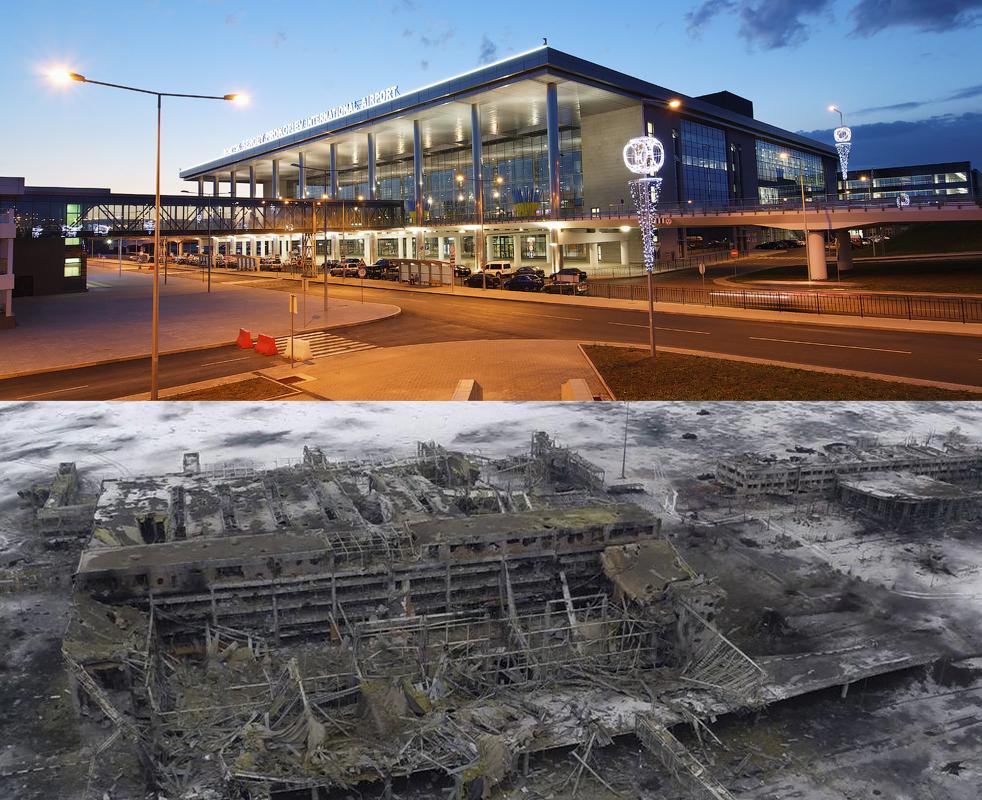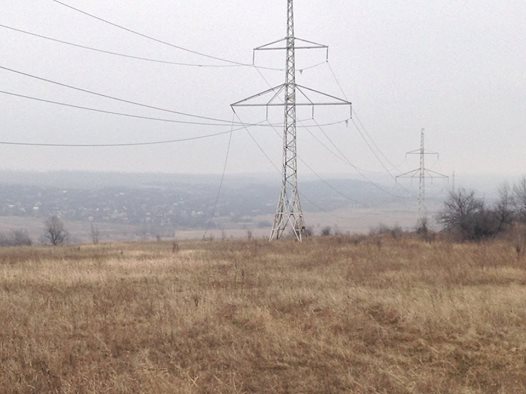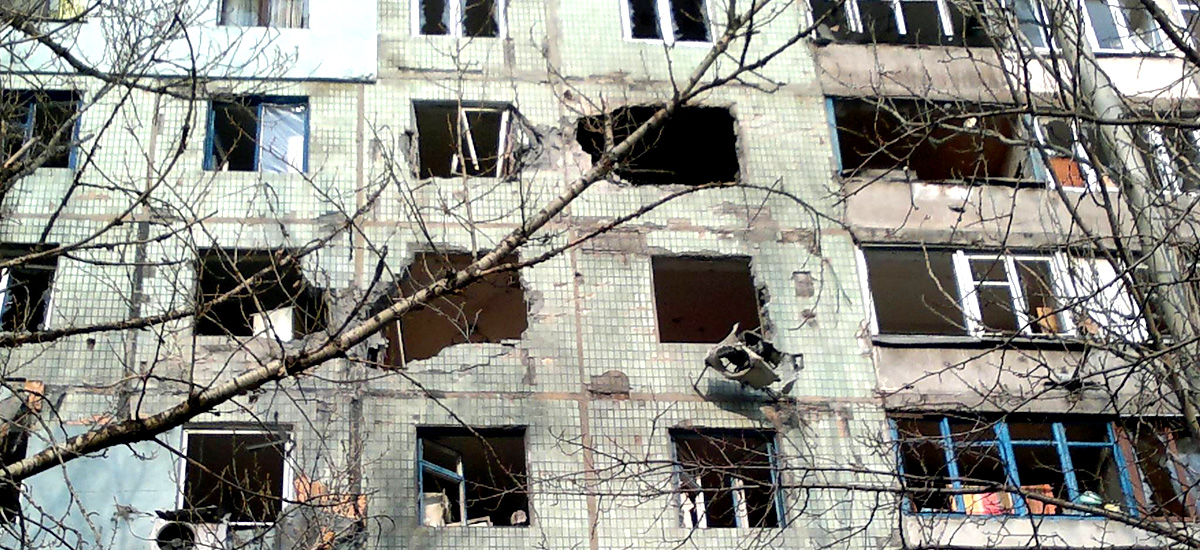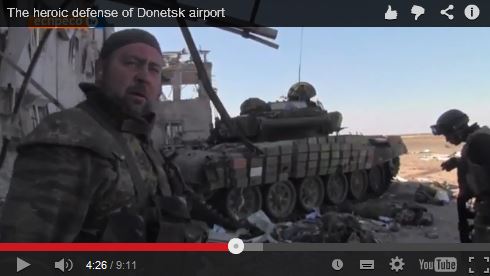Previously, Anastasia attended journalism workshops offered by the New Donbas NGO, where she learned how to create basic web sites. She first published her piece on the Tilda platform in Russian. Here we publish its translation with some additional clarifications of hers.
Hello! My name is Nastia. When the war began, I was just 11, and I lived in occupation until I was 16. This year I moved to Dnipro to graduate from school and enter university since I’d like to become a journalist. I have something to say and to share with the world and I want to do it. I want people to know what an ordinary Donetsk resident is now experiencing there on the other side of TV screens and borders, rather than how it’s depicted in the social media feeds and in fake news. I want that my words touch everyone so that some other child would not be deprived of their childhood because of the war in the future. But first things first.
When I tell people about my experiences, which I do quite often, those who haven’t ever been to Donetsk look at me with eyes wide open. However, among Donetskers, it’s not customary to talk about it - why talk when the flavor of the streets speaks for itself? There are a number of very special things like “dead districts” that were once rained down with artillery shells, a “privilege” of living near military units, beautiful transport tickets with their design updated once a month. Life doesn’t get brighter with them, dull colors prevail anyway. However, formerly I used to consider this city home with my naive childish brain.
“A fighter plane!”
I remember bits and pieces of a detached memory. One day after a math test, we naive five-grade students left stuffy classrooms and went to the street. It’s May, we are in t-shirts anticipating summer holidays, playing in the yard, and suddenly someone shouts “Fighter plane! There’s a fighter plane!” We look up and start welcoming it and raising our hands to the sky. Back then we didn’t realize what events were about to come. We didn’t understand it until we heard the terrible rumbling and car alarms going off under our windows. And then we became mature in one summer.
At first, you live under the same flags and clear sky, and then everything turns upside down, and you find yourself living or rather surviving for five years in a small republic jokingly called a million-person village where you know everyone and everyone knows you, and the same faces are flickering on TV, in newspapers, on the streets. Nothing new happens there. No one arrives. And those who leave are thought to be the lucky ones.
Once a girl I know told me that she felt as if she was living is “under a dome,”
“Look, we are surrounded by borders, limitations, I don’t even walk anywhere without my passport. If I receive a school certificate, no one would care about it anywhere else but in five miserable colleges here, if I will receive a passport of this republic, it would be usable exceptionally in this territory. Like a rat in a cage ... As if you got your hands tied.”

Read also: School children from occupied Donbas want to enter universities in free Ukraine
Local flavor
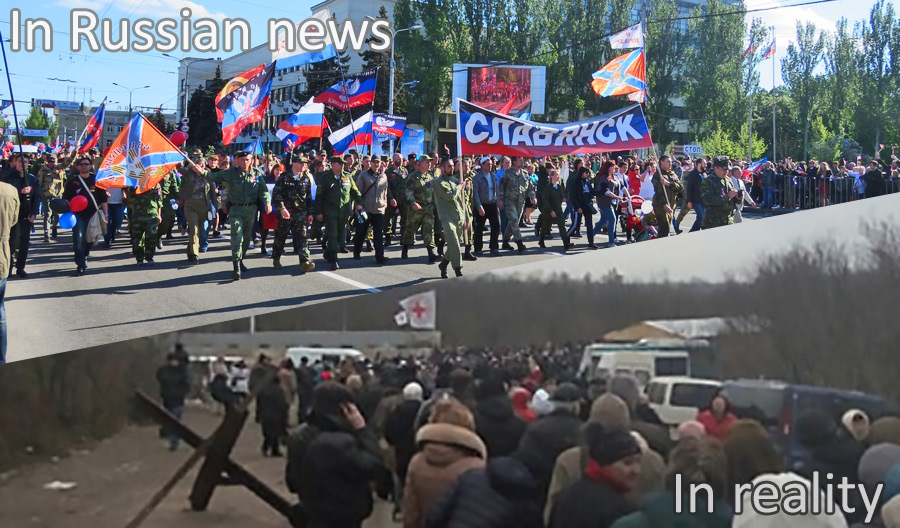
Empty aisles in stores, any business go down in flames in a month, endless halted constructions and renamed supermarkets. And along with this amid the downturn - an economical hole - in the foreground of dullness and poverty of the population dying from hopelessness and uselessness, they are throwing at us on TV street interviews with pensioners and colorful fireworks and parades of the “Republic Day” celebrations. This bright, colorful and expensive wrapper is meant to hide the very essence of Donetsk as they are gathering thousands of people with flags and banners purely to have pictures for newspapers. They show off the achievements of the youth who have no future, who are under the thumb. The 16-year-olds with their young uninstructed minds have to dig through their way to the light by themselves in order to find loopholes and leave, leave and leave. Because why lift the republic from its knees when you yourself are getting drowned and brought on your knees?
It was not the war by itself that killed our childhood, the republic was doing it, the conditions, the never-ending flow of promises. That is why we gave up any trust and rely on ourselves alone. It’s hard, it’s unfair, but we have no time to reflect on it while working our way up.

Markers of memories
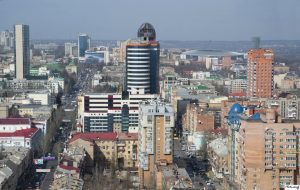
The funniest and most horrifying thing is that the people who fled, whose houses turned into concrete chips, who were running away from all these troubles toward a happy bright future, they return. Not for good, for only a day or two they break through the endless queues at checkpoints to see loved ones, very own streets and boulevards. The city itself, its buildings, parks, and locations didn’t contribute to the bad situation here in any way. The city had just deflated like a balloon, but you are still loving it and still willing to see it. “Oh! My first kiss was here and that’s the place where I found a thousand rubles three years ago,” and that’s all around like that. This is a map of countless markers of memories.
“And what about my flat? My very own courtyard and the park nearby? The same friends, the elderly and the school teachers?” This is a golden side of Donetsk. Unfortunately, you can have a hard time understanding it if you didn’t live here.
Donetsk was a magnificent city, its streets offered nice views even when watched on TV, and the times of the Euro 2012 Championship are still remembered fondly here. I would like to believe that the things going on there are only “temporary difficulties” and that the city would manage to dig itself out of this hole and be able to clear its good name in the future.
- Bringing democracy to Shchastia, traumatized war-town with a happy name
- German NGO strengthens civil society in Sloviansk, first victim of “Russian Spring”
- From “Russian world” supporter to Ukrainian patriot: a story of a Donbas girl’s worldview transformation
- Exchange programs dispel destructive myths, bridge east-west divide in Ukraine
- Oleksandra Dvoretska: We IDPs have a motivation – to return Crimea and Donbas
- Quarter of Ukrainian IDPs suffer from depression, few get help
- The Ukrainian IDPs who started over from scratch
- How Eastern Ukraine IDPs succeed in business after escaping the war
- Shyrokyne: Ruined front-line village and people who still hope to return home
- Who is who in the Kremlin proxy “Donetsk People’s Republic”

